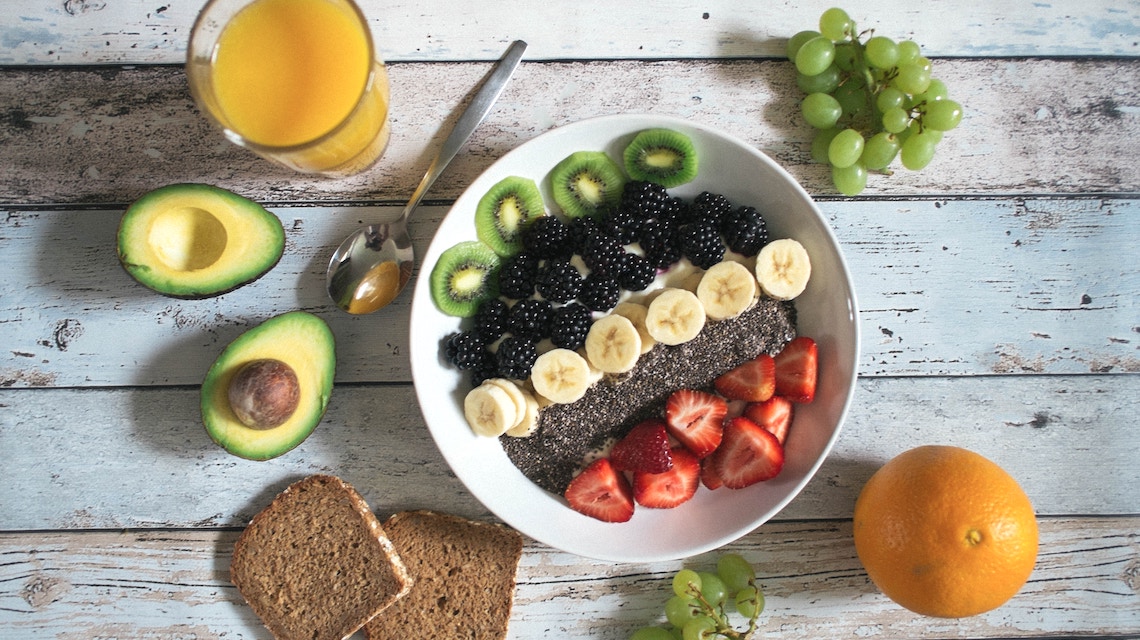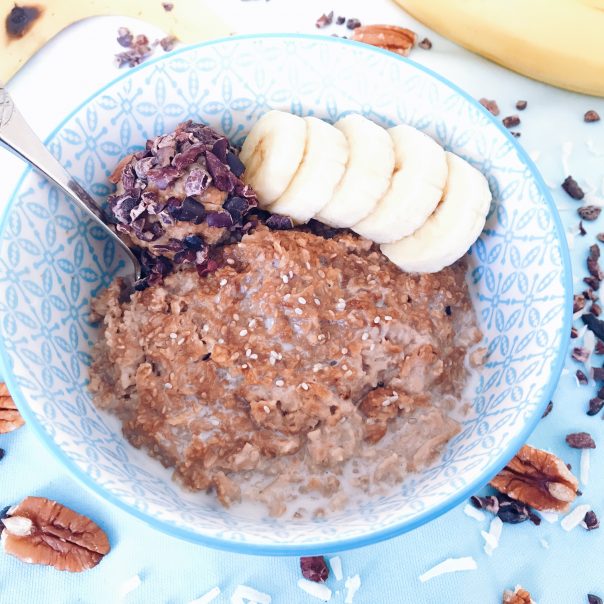This insightful post is by our guest contributor, Sara Jackson. Sara is a Registered Nutritional Therapist and Naturopath who embraces a balanced Functional Medicine approach to support her clients’ health. Learn more about Sara and her approach to meaningful nutrition and healthier living.
We’ve all heard the mantras: you are what you eat, eat to nourish you, mindful eating, intuitive eating, clean food, dirty food, let food be thy medicine…you get the drift. And while I agree with a lot of the headlines that have helped get debates about positive nutrition back on the table, I believe that nutrition is nuanced, complex and very individual. Educating people about proper, balanced nutrition is now my life’s passion and work.
I want you to stop and actually think about how food affects you. How it affects your mind, body and soul and what part it plays into how you feel as a human being in your life at this very moment — both the good, and the bad bits. Forget about all the rules, fads and fiction and just think about your body for a moment.
I know firsthand the effects that positive and poor nutrition can have on our bodies. This time about seven years ago, I was facing a diagnosis of stage 2 cervical cancer that came totally out of the blue. In hindsight, I can see the link between developing cancer and my long hours in a stressful job, very haphazard diet, and generally just not really prioritising my health in any meaningful way. These factors compromised my immunity and made me more susceptible to the HPV virus, which most of us live with every day, but for me turned rogue and developed into cancer. With the help of both conventional and natural medicine, I have thankfully been clear of cancer ever since my treatment finished.
I have used this experience positively and changed almost everything that I felt was important in my life. I studied for four years retraining to become a fully accredited Registered Nutritional Therapist. My goal was and is to use my personal experience with how nutrition, along with some other powerful lifestyle changes, have transformed my health and kept me free from cancer. I am now privileged enough to help others dealing with cancer journeys, as well as a host of other illnesses and disorders that I specialize in such as chronic fatigue, digestive health and many more.
So I would like to share with you four meaningful and manageable ways you can really use nutrition to make a difference in your life:
1. Eat more health giving food, and less processed foods.
Recent studies show we should ultimately eat 8—10 daily servings of rainbow coloured vegetables and fruit.
Action point:
The next time you go shopping, pick one veggie that you usually walk straight past and find a delicious new recipe to cook with it. Start off by adding one extra green veg to your lunch and evening meal. Think about seasonal cruciferous vegetables (broccoli, kale, chard, salad greens, cabbage, brussel sprouts, cauliflower), and lots more garlic and onions which help increase sulfur in the body and help detoxification.
2. Ditch the unhelpful carbs
Not all carbohydrates are bad, however many of the “simple” carbohydrates found in processed and refined foods can contribute to insulin disruption, bloating, fatigue, moodiness and poorer gut health.
Action point:
We need carbs no matter what you heard – but it’s time to embrace the good guys. Oats, quinoa, brown rice, buckwheat, beans and lentils can be your new best friends.
3. Use dietary fibre to prevent disease.
There seems to be less hype about fibre than many other dietary considerations such as sugar and fats. Fibre consumption in the Uk is well below national targets of 30g a day for adults (the average intake is 17.2/day for women and 20.1g/day for men). There are countless evidence based studies to show that diets rich in fibre can play a part in lowering the risks of many disease such as cardiovascular disease, coronary events, stroke, type 2 diabetes, colorectal cancer, gastrointestinal and digestive health disorders.
Action point:
Increase your daily intake of fibre‐containing foods such as fruit, vegetables, nuts and seeds and high‐fibre/wholegrain starchy foods. Adding two tablespoon of chia seeds daily adds a whopping 12g of dietary fibre to a well balanced diet.
4. Get good gut bugs.
Our gut micro biome are central to our immune systems, our mental and emotional health and the way we absorb and get the most out of the food we eat. Stress, processed food, antibiotics, alcohol, cigarettes, sugar, pollution may compromise good bacteria and feed the pathogenic bacteria. However we can improve this pattern with changes to lifestyle and diet and adding natural probiotic and prebiotic via supplements, fermented food and drink.
Action point:
Try out some probiotic rich food and drinks to help improve your gut health. Look in the refrigerated section of your supermarket or health food store for kombucha and kefir drinks, or try foods like sauerkraut, miso, kimchi, bio-live plain yoghurt and coconut yoghurt.


